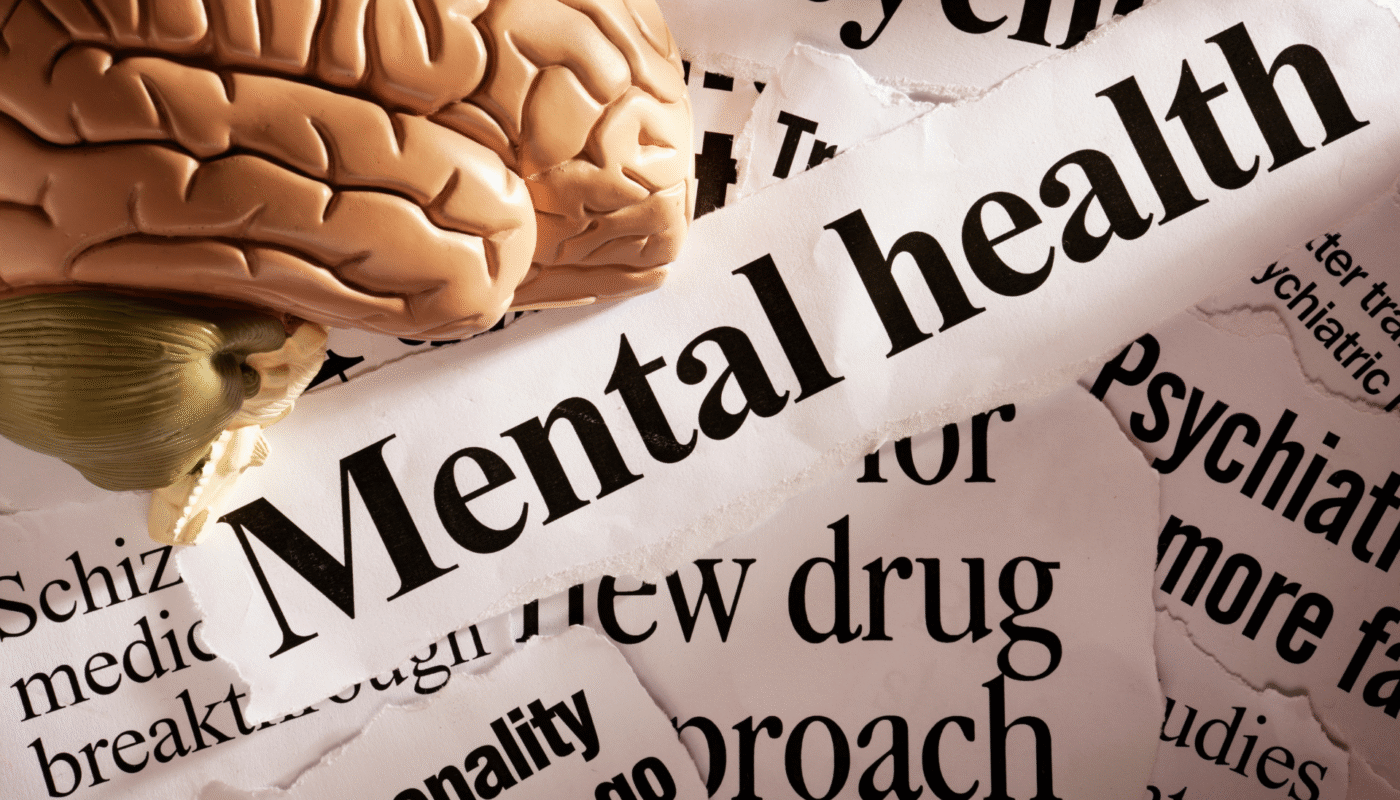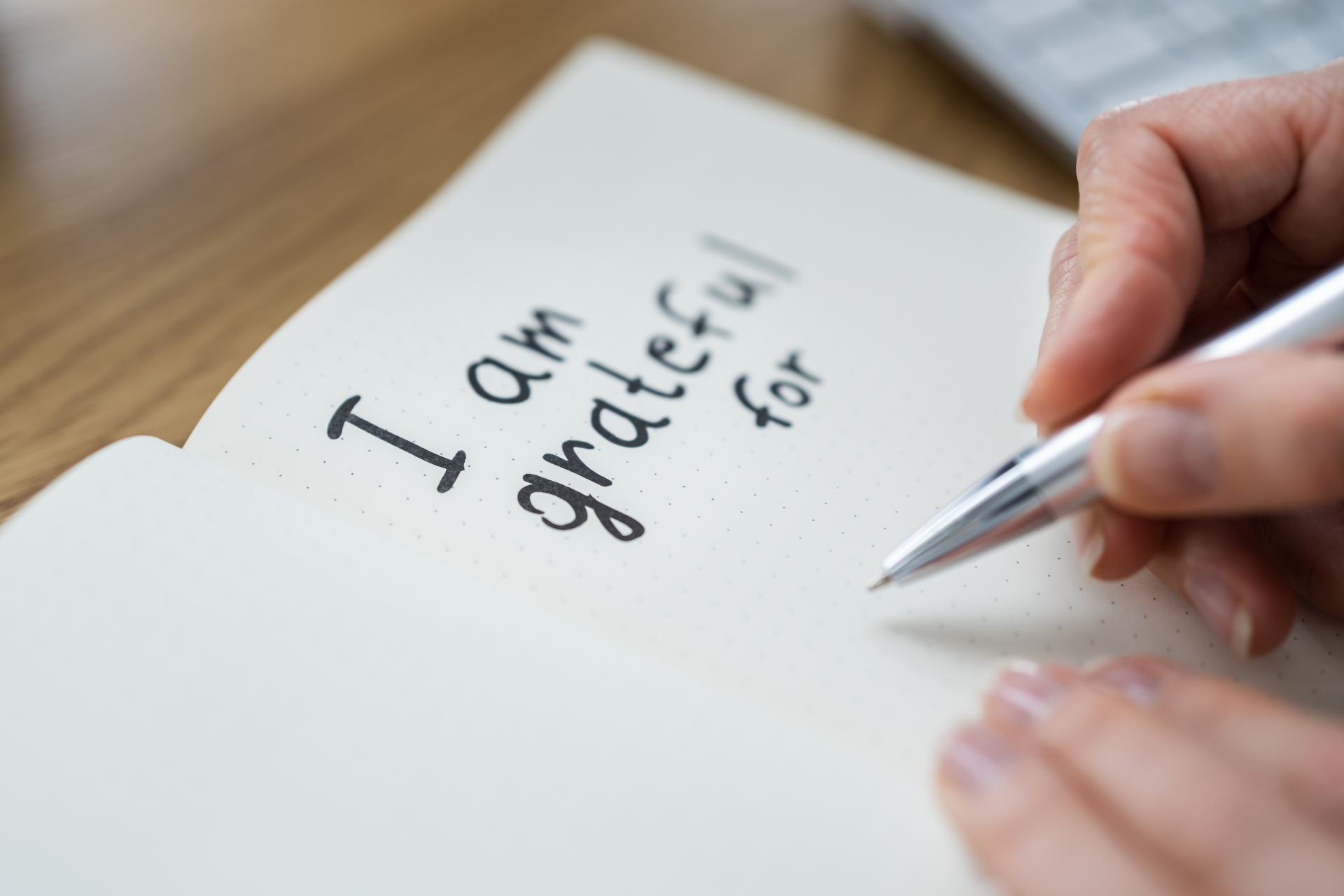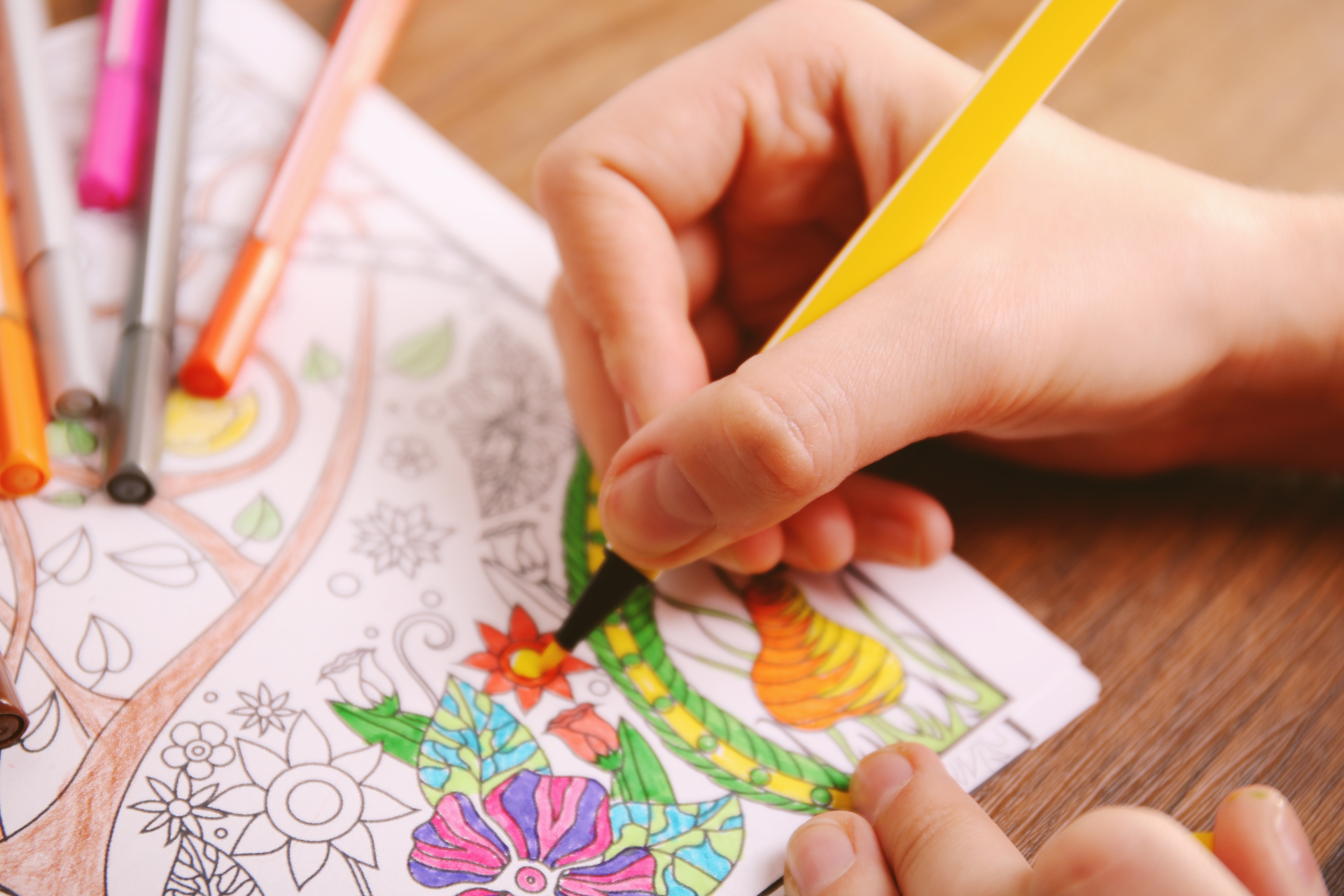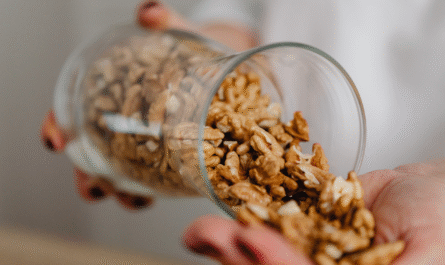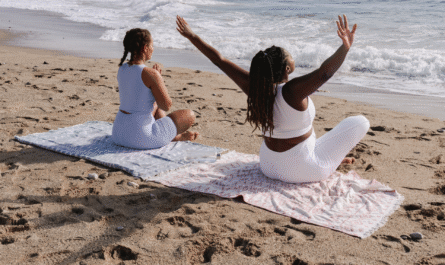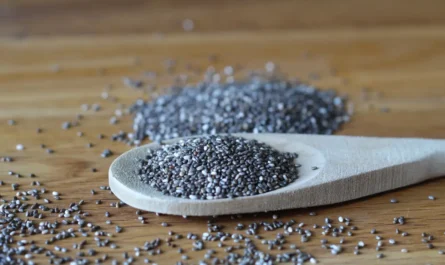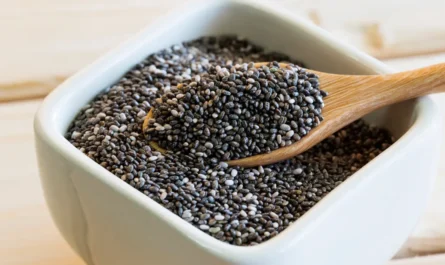Quick mental health tips are essential tools that anyone can apply in their daily life to feel more balanced, less stressed, and more in control. Whether you’re overwhelmed with work, dealing with anxiety, or simply trying to boost your mood, these strategies offer straightforward ways to support your emotional wellbeing. In today’s fast-paced world, carving out time for self-care is no longer optional, it’s vital.
The good news? You don’t need hours of free time or an expensive wellness retreat to improve your mental health. These tips are designed to be accessible, practical, and impactful. From mindfulness exercises for beginners to mental health activities for adults, this list gives you 35 ways to show up for yourself starting today.
What are Quick Mental Health Tips?
Quick mental health tips are small but powerful actions that you can incorporate into your routine to boost your mental and emotional wellbeing. They don’t require a major lifestyle overhaul or therapy sessions (although therapy is a great support too). These are things you can do during your lunch break, before bed, or even while commuting.
These tips often involve a mix of self-care activities, mindfulness practices, wellbeing activities, and mental health exercises. Think of them as preventative care for your mind, simple habits that help manage stress, enhance mood, and keep your mental space clear and grounded.
When practiced regularly, these quick mental health tips become part of a larger self-care routine for stress management, anxiety relief, and overall resilience. They also make a mental health improvement approachable and realistic for people with busy schedules.
Why These Tips Matter
Mental health doesn’t improve by accident, it improves with intention. These quick mental health tips matter because they provide immediate, manageable ways to respond to stress, anxiety, and emotional fatigue. With mental illness on the rise globally, people need realistic strategies they can actually follow. That’s what makes quick tips so powerful. They don’t require a complete lifestyle change or hours of your day, just a few focused minutes can help shift your mindset, regulate your emotions, and bring a sense of calm.
Many adults struggle with balancing responsibilities, which often leaves little time for wellbeing activities. This leads to chronic stress, burnout, and even depression. When mental health is neglected, productivity suffers, relationships strain, and physical health declines. That’s why incorporating mental health improvement tips into daily routines isn’t just helpful, it’s necessary. These tips work as small but mighty tools to prevent long-term consequences and support ongoing mental resilience.
Additionally, these tips serve as anchors throughout the day. Whether you’re practicing mindfulness exercises for beginners, using a mental health worksheet to track your emotions, or joining group therapy activities to feel supported, the key is consistency. By making mental wellness practices part of your regular schedule, you reinforce the idea that your emotional health is worth investing in.
Lastly, these strategies empower people to take ownership of their mental well-being. Instead of waiting for a crisis to take action, you can proactively build self-care routines for stress, resilience, and peace of mind. That sense of agency can be life-changing. Let’s dive into the 35 quick mental health tips that can help you feel better, think clearly, and live more intentionally.
35 Quick Mental Health Tips to Boost Your Mental Health
1. Practice 5-Minute Meditation Daily
Meditation doesn’t have to be long or complicated to be effective. Just five minutes a day of focused breathing or mindfulness can dramatically shift your mental state. This is one of the best mindfulness exercises for beginners because it requires no special equipment, no background knowledge, and you can do it virtually anywhere, your bedroom, your car, or even a quiet bathroom at work. The key is consistency.
Short meditation sessions help lower cortisol levels, reduce anxiety, and increase mental clarity. These effects build up over time, creating a protective buffer against daily stress. Think of it like brushing your teeth: one time won’t change everything, but regular practice builds resilience. It’s a mental health exercise that pays off in clearer thinking and calmer responses.
To get started, find a comfortable seated position and close your eyes. Breathe in through your nose for four counts, hold for four, breathe out for four, and pause for four. This technique, known as box breathing, is widely used by therapists and athletes alike. It’s simple, effective, and proven to help with anxiety and stress.
Adding this short meditation into your morning or bedtime routine can also improve sleep and energy levels. It can easily be paired with other self-care activities like journaling or stretching, making it a core piece of any mental wellness practice.
2. Create a Morning Self-Care Routine
A strong morning routine sets the tone for the rest of the day. By intentionally starting your day with self-care activities, you prime your brain to handle challenges more calmly and confidently. This routine doesn’t need to be long; 15 to 30 minutes of focused self-care can drastically improve your mood and mental clarity.
Start with something grounding, like drinking a full glass of water or stretching while still in bed. Follow that with a mindfulness activity like breathing exercises or journaling. These are small acts, but they send a powerful message to your brain: “I’m prioritizing my wellbeing.” This is especially helpful for people dealing with high-stress environments or unpredictable workdays.
Creating a routine also helps reduce decision fatigue. When your brain doesn’t have to waste energy on the basics, you’re more likely to have better focus, memory, and emotional regulation. Add in habits like prepping a healthy breakfast or doing a five-minute meditation, and you’ve already completed multiple mental health improvement tips before 9 a.m.
Ultimately, a morning routine becomes a ritual, a daily commitment to yourself. Whether you’re including mindfulness exercises for beginners or simply taking time to breathe, the cumulative impact of these actions builds a strong foundation for mental resilience.
3. Take a Daily Walk Outdoors
Walking is more than just a physical activity; it’s a full-body reset. Even a 15-minute walk outside can significantly boost your mental health by increasing serotonin levels, clearing your head, and improving sleep. If you’re looking for top ways to improve mental health at home, this is an easy and free option that works.
Being in nature adds another layer of healing. Green spaces have been shown to reduce stress, improve mood, and even lower blood pressure. If you live in an urban area, walking around your block or finding a local park still counts. The key is to disconnect from your screen, move your body, and engage your senses.
You can enhance the mental benefits by turning your walk into a mindfulness practice. Notice the colors of the leaves, the feeling of the wind, or the rhythm of your steps. This presence shifts your brain out of fight-or-flight mode and into rest-and-digest, supporting both your emotional and physical health.
Incorporating a daily walk into your self-care routine for stress can also double as quiet time or personal reflection. It’s an excellent moment to process thoughts, reset your nervous system, and return to your day more centered and focused.
4. Keep a Mental Health Journal
Writing down your thoughts is one of the simplest and most effective mental wellness practices available. A mental health journal can help you track emotions, recognize patterns, and process complex feelings that might otherwise go unspoken. Best of all, it’s completely private and customizable.
This is especially valuable for adults navigating high-stress careers, relationships, or parenting. Taking 10 minutes each day to reflect on how you feel helps clarify what’s bothering you and what’s helping you. That awareness is the first step in making meaningful changes.
Use your journal to write about stress triggers, emotional wins, or simply describe your day. Some people prefer using a structured mental health worksheet to guide their journaling. Prompts like “What made me feel anxious today?” or “What gave me energy today?” can provide useful insight into your mental state.
Over time, journaling becomes not just a coping strategy but a proactive mental health activity. It gives you perspective, improves emotional intelligence, and helps you develop a stronger connection with yourself.
5. Use a Gratitude List
Gratitude is one of the most powerful mental health improvement tips you can practice. Keeping a daily gratitude list helps rewire your brain to focus on what’s working rather than what’s lacking. This small habit boosts positivity, lowers stress, and improves sleep quality.
Start by writing down three things you’re grateful for each morning or evening. These don’t need to be major life events; simple joys like a good cup of coffee, a warm bed, or a text from a friend all count. The goal is to train your brain to notice and appreciate the positive.
Studies show that regular gratitude practice enhances emotional well-being and even reduces symptoms of depression. It can be especially effective when paired with other self-care activities or mindfulness exercises. Gratitude shifts your mental lens and makes you more resilient to life’s challenges.
If you’re pressed for time, keep a small notebook by your bed or use a notes app on your phone. What matters is consistency, not perfection. Over time, this practice becomes a cornerstone in your self-care routine for stress management and emotional balance.
6. Schedule Digital Detox Hours
In a hyper-connected world, taking breaks from digital devices is more than a luxury, it’s a necessity for mental clarity. Constant notifications, social media comparisons, and information overload can lead to anxiety, burnout, and reduced attention span. One of the most effective quick mental health tips is to schedule specific hours during your day for a digital detox.
Start with small windows, like 30 minutes in the morning or during meals, where you turn off your phone or place it in another room. This gives your brain space to recalibrate. Over time, consider expanding your digital detox to include longer stretches, such as Sunday mornings or weekday evenings. These pauses can act as mental health exercises by reducing cognitive load and allowing space for intentional living.
During your detox periods, replace screen time with wellbeing activities, read a book, go for a walk, cook a meal, or simply sit in silence. These alternatives are not just fillers; they actively restore your focus and reduce overstimulation. For those working remotely, integrating a digital detox into your self-care routine for stress is especially important.
Ultimately, digital boundaries help you reconnect with the real world and yourself. You’ll feel less reactive, more grounded, and more in control of your emotional energy. Even short digital breaks can offer huge returns for your mental wellness.
7. Try Progressive Muscle Relaxation
Progressive Muscle Relaxation (PMR) is a technique where you tense and then slowly release each muscle group in your body. It’s a physical mindfulness exercise that promotes a deep sense of calm. Used widely in therapeutic settings, PMR is one of the most effective mental wellness practices for reducing anxiety and improving sleep.
Start at your feet, clenching your toes tightly for 5 seconds before slowly releasing. Work your way up through your legs, abdomen, arms, shoulders, and face. The process teaches body awareness and helps you recognize where tension accumulates. For beginners, audio guides and apps can walk you through the steps.
PMR is an ideal addition to your nighttime routine. Doing it before bed helps relax your nervous system and transitions your body into sleep mode. It’s also an excellent practice for people who struggle with racing thoughts or insomnia. Practicing PMR daily enhances the mind-body connection and serves as a powerful mental health exercise.
Include it in your list of mindfulness activities or use it alongside deep breathing and meditation. Over time, you may find your stress responses becoming less reactive, helping you stay composed even during high-pressure moments.
8. Drink More Water
Hydration is often overlooked when discussing mental health, but it plays a crucial role in how your brain functions. Dehydration can lead to fatigue, irritability, and cognitive fog, all of which can worsen symptoms of anxiety and stress. One of the simplest mental health improvement tips is to drink more water consistently throughout the day.
Start your morning with a glass of water to activate your system. Keep a reusable bottle with you as a visual reminder to stay hydrated. You can even gamify the habit with water-tracking apps or by adding natural flavors like lemon or cucumber to make it more enjoyable. This small act supports both physical and emotional well-being.
Proper hydration improves mood, focus, and energy levels. It also supports your self-care routines for stress, helping your body maintain balance under pressure. When you’re well-hydrated, you’re more likely to stay mentally clear and emotionally even.
Don’t underestimate the mental lift that comes from treating your body right. Paired with other self-care activities like nutritious meals or light exercise, drinking water can significantly enhance your mental health routine.
9. Join a Support Group
Connecting with others who understand your struggles is one of the most validating and healing experiences you can have. Support groups, whether in-person or virtual, offer a space to share, listen, and grow without judgment. For those seeking group therapy activities or community-driven mental health activities for adults, support groups can be transformative.
You don’t need to be in crisis to benefit. Many people join groups for stress management, parenting challenges, grief, or chronic illness. These spaces normalize mental health conversations and allow people to learn from each other’s experiences. You’ll often find a sense of relief just knowing you’re not alone.
Structured groups often use mental health worksheets, prompts, or shared activities to guide discussions. These formats help participants process emotions more deeply and develop useful coping strategies. Even just one hour a week can lead to meaningful insights and emotional support.
If you’re hesitant, start by observing a session or joining an online forum. The key is finding a space that feels safe and aligns with your needs. Over time, group therapy becomes a steady anchor in your mental wellness journey.
10. Learn to Say “No”
Setting boundaries is an essential form of self-respect and emotional protection. Yet many adults struggle with saying “no” due to fear of disappointing others or being perceived as difficult. Learning to say “no” is one of the most empowering mental health tips you can apply in daily life.
When you say yes to everything, you end up stretched too thin, emotionally drained, and more prone to burnout. Saying “no” allows you to reclaim your time, energy, and focus for what truly matters. It’s not about being selfish; it’s about being intentional. This is a key component of self-care routines for stress.
Practice by starting small, decline an invitation you don’t want to accept, or say no to extra work you can’t realistically handle. You can use respectful but firm phrases like, “I appreciate the offer, but I can’t commit right now.” The more you do it, the easier it becomes.
Setting clear boundaries protects your mental space and reinforces your sense of control. It’s a long-term investment in your mental wellbeing and helps you build more authentic and respectful relationships.
11. Cook One Healthy Meal a Day
Nutrition plays a direct role in how you feel. Cooking one healthy meal a day is a small commitment that yields big results for your mental and physical health. It creates structure, provides nourishment, and gives you a sense of accomplishment, all of which are valuable mental wellness practices.
You don’t need to be a gourmet chef. Keep it simple: grilled veggies, lean protein, or a hearty soup can all do the trick. The act of cooking itself can be a mindfulness activity. Focus on chopping, stirring, and tasting with intention. This helps anchor you in the moment and distract from negative thoughts.
For adults juggling busy lives, making time to cook can be a grounding ritual. It fosters independence, improves diet quality, and often inspires other healthy habits. Cooking can also be a fun group activity with friends or family, doubling as one of your go-to group therapy activities at home.
Even if you start with just one meal a day, the benefits compound over time. You feel better physically, think clearly mentally, and gain confidence in your ability to care for yourself.
12. Use Guided Visualization
Guided visualization is a powerful mental health activity where you mentally imagine a calming scene or a successful outcome. It activates the imagination in a way that promotes relaxation, reduces anxiety, and builds focus. It’s one of the easiest mindfulness exercises for beginners and can be done anywhere.
Choose a guided recording or simply close your eyes and picture a peaceful place, a beach, a forest, or a quiet cabin. Engage all your senses: What do you hear? Smell? Feel? This immersive practice helps train your brain to shift away from anxious loops and into a state of calm.
Visualization is also great for goal setting. Picture yourself handling a difficult conversation with grace or completing a stressful project. Athletes and CEOs use this technique to boost performance and emotional regulation.
Try incorporating visualization into your bedtime routine or during breaks at work. Over time, it becomes a quick mental reset that supports your overall emotional resilience.
13. Tidy One Small Space Each Day
A cluttered space can lead to a cluttered mind. Tidying up even one small area each day, a desk, nightstand, or kitchen counter, can create a ripple effect of mental clarity and calm. This is one of the top ways to improve mental health at home without needing a major time investment.
Cleaning can also serve as a form of mindfulness. Focus on the task at hand: folding laundry, wiping a surface, or organizing papers. When done with intention, it becomes a grounding exercise that brings immediate visual and psychological relief.
Decluttering your space also creates a sense of accomplishment and control. This is especially helpful when other areas of life feel chaotic or uncertain. Start small to avoid overwhelm and build momentum over time.
Making tidying a part of your self-care activities can help reinforce the connection between your environment and your emotional health. The clearer your surroundings, the easier it becomes to think, breathe, and relax.
14. Practice Affirmations in the Mirror
Affirmations are positive statements that help challenge and change unhelpful thoughts. When spoken aloud while looking in the mirror, they become even more powerful. This practice is simple but can deeply influence your self-esteem and mental outlook.
Start with a few phrases that resonate with you: “I am enough,” “I can handle what comes my way,” or “I deserve peace.” Repeat them each morning, even if it feels awkward at first. Over time, this becomes a tool for self-reinforcement and emotional regulation.
Affirmations help rewire negative thought patterns and can serve as a proactive way to prepare for stressful situations. They shift your inner dialogue, which plays a major role in how you experience the world. This makes them a great addition to any mental wellness practice.
You can pair affirmations with other quick mental health tips like journaling or deep breathing for added effect. The key is repetition and sincerity. What you say to yourself matters, make it kind, strong, and supportive.
15. Take a Break Without Guilt
Rest is not a reward, it’s a necessity. Many adults push through exhaustion because they feel guilty about taking breaks. But refusing to rest can lead to burnout, irritability, and reduced productivity. One of the most freeing mental health improvement tips is to take guilt-free breaks.
Start by reframing your mindset: breaks are part of working smart, not signs of laziness. Whether it’s a 10-minute walk, a power nap, or just sitting quietly, these pauses restore your energy and mental clarity. They also give your brain a chance to process and reset.
Incorporate breaks into your daily schedule just like meetings or tasks. Set timers if you have to. Step away from your screen, stretch, or do a mindfulness activity. Treat it as non-negotiable time for your mental health.
Taking breaks is a form of self-respect. It supports long-term resilience and performance. When you honor your need to rest, you model healthy habits for others and reinforce the idea that your well-being is a priority.
16. Make a Weekly Fun Plan
Planning fun activities in advance might sound too structured for something that should be spontaneous, but it’s a powerful mental health strategy. When you carve out time for joy, you’re sending your brain a clear message: fun and rest are priorities. This can offset the emotional wear and tear of stressful routines and prevent burnout.
Use Sundays to plan something you’ll look forward to during the week—a game night, art class, solo hike, or even a movie marathon at home. These become micro-events that boost your mood, give structure to your downtime, and make you more resilient against daily stressors. They also provide important variation to an otherwise predictable week.
The act of looking forward to something pleasurable creates dopamine, a feel-good brain chemical. This boost in anticipation can help get you through hard days and make your week feel more balanced. It’s also a proactive form of self-care that turns intention into action.
Include others if it feels right. Turning these into group therapy activities can strengthen your social connections, which are crucial for emotional health. Regular fun isn’t a luxury, it’s a mental wellness practice.
17. Use Mental Health Worksheets
Mental health worksheets offer a structured way to reflect, plan, and grow emotionally. They help organize your thoughts, track your progress, and identify mental health triggers. Whether you’re working through anxiety, building confidence, or learning to manage stress, these tools provide clear guidance.
You can find worksheets focused on everything from daily gratitude to cognitive distortions, often created by licensed therapists. They are great resources for adults who prefer tangible, step-by-step support. Pairing them with journaling or group therapy activities can further amplify their impact.
Using these sheets regularly encourages accountability. You begin to notice patterns, recognize emotional cycles, and track what coping strategies actually work for you. This makes them an excellent addition to any mental health improvement plan.
They’re especially helpful for visual learners or people who feel overwhelmed by unstructured reflection. With time, these worksheets can become a core part of your self-care routine for stress and emotional regulation.
18. Practice Box Breathing
Box breathing is a simple but powerful breathing technique used by Navy SEALs, first responders, and therapists to quickly reduce stress and restore calm. It involves inhaling, holding, exhaling, and pausing for equal counts, usually four.
Start by breathing in for four seconds, holding for four, breathing out for four, and pausing for four. Repeat the cycle at least four times. This method helps activate the parasympathetic nervous system, which slows your heart rate and signals to your brain that you’re safe.
Box breathing is easy to incorporate into daily life. Use it during a work break, before a stressful conversation, or while waiting in traffic. It’s one of the most beginner-friendly mindfulness exercises for anxiety relief.
The beauty of box breathing lies in its accessibility. You don’t need any equipment or preparation. It’s a reliable, fast-acting way to regulate emotions, sharpen focus, and enhance your self-awareness.
19. Listen to Calming Music or Nature Sounds
Sound has a profound impact on your nervous system. Calming music and nature sounds can lower cortisol levels, reduce anxiety, and improve concentration. This makes listening a versatile self-care activity you can use in nearly any setting.
Start your day with gentle instrumentals or end it with ocean waves or rainfall audio. These sounds help cue your body to relax and are especially useful during transitions, waking up, commuting, or preparing for sleep. Some people even use them during work to maintain focus.
Calming audio can also complement other mental wellness practices. Play it during meditation, journaling, or stretching to deepen your relaxation. Many mindfulness apps offer curated soundtracks designed specifically for mental clarity and emotional balance.
Incorporating soothing soundscapes into your daily life is a passive yet powerful way to support your mental health. It creates a calming background for your thoughts and reduces emotional overload.
20. Use Coloring Books for Adults
Coloring isn’t just for kids. Adult coloring books have become a recognized form of art therapy that reduces stress, improves focus, and encourages mindfulness. This creative outlet allows your brain to enter a meditative state without requiring intense concentration.
When you color, your mind gets a break from worry and rumination. Focusing on color choices and repetitive motion provides just enough engagement to calm the nervous system. It’s especially helpful for people who struggle with traditional meditation.
Coloring can be a solo self-care activity or a social one. Join a coloring group online or invite friends over for a creative, tech-free night. You can even pair it with relaxing music for a full sensory reset.
Keep a coloring book and pencils accessible in your workspace or nightstand. Whenever you feel overwhelmed, use it as a go-to mindfulness activity to bring yourself back into the present moment.
21. Set a Sleep Schedule and Stick to It
Sleep is foundational to mental health. Irregular sleep patterns can increase irritability, impair decision-making, and elevate anxiety. One of the most impactful mental health improvement tips is to establish a consistent sleep schedule.
Go to bed and wake up at the same time every day, even on weekends. This helps regulate your circadian rhythm, making it easier to fall asleep and stay asleep. Quality rest restores your brain and body, improving mood, memory, and focus.
To support better sleep, create a bedtime routine that includes self-care activities like dimming the lights, avoiding screens, and doing a calming mindfulness exercise such as progressive muscle relaxation or reading. These habits signal to your brain that it’s time to unwind.
Improving your sleep is a non-negotiable part of any sustainable mental wellness practice. Consistent rest equips you to handle stress, make clearer decisions, and show up as your best self.
22. Practice Forgiveness (Including to Yourself)
Holding onto resentment or guilt can weigh heavily on your mental well-being. Practicing forgiveness, both toward others and yourself, can bring significant emotional relief. It doesn’t mean forgetting or excusing harm, it means choosing to let go for your own peace.
Start by identifying what’s weighing on you. Is it a conflict with a friend, a mistake you made, or lingering regret? Write about it in your journal or mental health worksheet to process your emotions. This reflection lays the groundwork for compassion.
Forgiveness is an ongoing process. Some days you may feel resolved, and other days the hurt resurfaces. That’s normal. Keep showing up for yourself by choosing peace over punishment. The goal is healing, not perfection.
When you forgive yourself, you break the cycle of self-judgment and open the door to growth. This act of emotional release is one of the most empowering mental health activities for adults seeking long-term transformation.
23. Engage in Acts of Kindness
Kindness isn’t just good for the recipient, it significantly benefits the giver. Doing something kind for someone else boosts serotonin and dopamine levels, reduces stress, and fosters a sense of connection. These acts can be simple but meaningful parts of your mental wellness routine.
Write a thank-you note, compliment a stranger, or help a neighbor with groceries. Small gestures matter. They pull you out of your own worries and redirect your focus toward others, which can shift your emotional state.
Acts of kindness can also build community and belonging, two crucial pillars of emotional health. You don’t need to wait for the “perfect moment” to start. Just pick one opportunity each day to make someone’s life a little brighter.
Kindness is one of the most accessible mental health exercises. It’s free, immediate, and always available, and the emotional return on investment is huge.
24. Talk to a Therapist
Talking to a licensed therapist is one of the most effective ways to support your mental health. Therapy provides a confidential, judgment-free space to explore your emotions, challenge thought patterns, and develop coping strategies.
Whether you’re dealing with anxiety, grief, trauma, or life transitions, a therapist can help you understand what’s going on beneath the surface. Many therapists also use mental health worksheets, journaling prompts, or structured interventions like cognitive behavioral therapy (CBT) to guide your progress.
Therapy can be done in person, over the phone, or via video calls. If you’re unsure where to start, try online directories or ask your healthcare provider for a referral. Some therapists offer sliding scale fees or accept insurance.
Working with a therapist doesn’t mean something is “wrong” with you, it means you’re taking your mental health seriously. It’s a proactive and courageous step toward emotional growth and resilience.
25. Create a DIY “Calm Box”
A “calm box” is a personalized kit filled with sensory items and tools that help you regulate your emotions during stressful moments. It’s a practical, hands-on form of self-care that you can turn to whenever you feel overwhelmed.
Your box might include items like scented lotion, a stress ball, a journal, herbal tea, a favorite book, or calming music. Think of it as a first-aid kit for your mind. These physical items can help ground you when anxiety strikes.
The act of creating the box is therapeutic in itself. It forces you to think about what soothes you and prepares you to care for your future self. Place your calm box somewhere accessible so it’s easy to reach when emotions run high.
This is a creative, empowering mental wellness practice that builds emotional resilience. You’re not waiting until things spiral, you’re proactively setting yourself up for support.
26. Laugh on Purpose
Laughter isn’t just a reaction, it can be a tool. Intentionally seeking out things that make you laugh, whether it’s a funny video, a comedy show, or a call with a witty friend, is one of the fastest ways to lighten your emotional load. Laughter boosts endorphins, decreases stress hormones, and brings immediate mental relief.
You don’t need to wait for something funny to happen naturally. Proactively build humor into your day. Follow a comedy account, schedule a sitcom episode into your evening routine, or recall a funny memory. The goal isn’t distraction but emotional release. Laughter can function like a reset button.
This is one of the most underrated quick mental health tips because it feels so simple. But science backs it up: even simulated laughter (like in laughter yoga) can stimulate real mood-lifting chemicals. And shared laughter, in particular, strengthens social bonds and fosters emotional safety.
Adding moments of laughter into your self-care routines for stress helps create balance in otherwise demanding days. It’s a free, accessible, and joyful form of emotional hygiene.
27. Practice Yoga or Stretching
Movement is medicine. Practicing yoga or simple stretching daily can have a profound impact on your mental state. It releases tension held in the body, improves circulation, and activates the parasympathetic nervous system, helping you feel calmer and centered.
You don’t need an hour-long yoga class to benefit. Even 5 to 10 minutes of gentle stretching can shift your energy and mindset. Try a few sun salutations in the morning or wind down with forward folds and deep breaths before bed. Pairing movement with mindful breathing enhances its grounding effect.
Yoga also builds mental resilience by training you to stay present through discomfort. This mirrors how we deal with life’s challenges, with patience, breath, and awareness. It’s an excellent mindfulness exercise for beginners who want to connect with their body and quiet their mind.
Make stretching part of your daily wellbeing activities. Whether it’s a formal practice or a few minutes on the floor while watching TV, moving your body intentionally supports your emotional stability.
28. Learn a New Skill or Hobby
Engaging in new learning lights up the brain and boosts dopamine, which helps improve mood and motivation. Learning a new skill or hobby also builds confidence and gives you a sense of purpose, both vital for long-term mental wellbeing.
Whether it’s learning to bake, playing an instrument, coding, painting, or speaking a new language, the key is curiosity and joy. Choose something you’re excited to try, not something that feels like a chore. This makes the experience energizing, not draining.
Hobbies also act as a healthy distraction. They create a flow state where you lose track of time and stop overthinking. This mental break helps reduce anxiety and offers a sense of renewal, even during high-stress weeks.
Make time for your hobbies just like any other mental health activity. They are more than leisure, they’re a direct investment in your self-worth, emotional resilience, and overall happiness.
29. Declutter Your Digital Life
Digital clutter is a real source of stress. Full inboxes, unorganized files, and nonstop notifications can leave you feeling overwhelmed. One of the top ways to improve mental health at home is to declutter your digital space.
Start by turning off non-essential notifications. Then, organize your desktop, unsubscribe from unnecessary emails, and delete unused apps. Set a recurring calendar reminder to keep things tidy. These small steps restore a sense of control over your digital world.
Digital clarity supports mental clarity. Just like a clean room reduces visual stress, a clean digital environment helps reduce mental fatigue. This is especially important if you work from home or spend long hours online.
Make digital detox part of your self-care routine. Schedule weekly 15-minute blocks to maintain it. You’ll be amazed how much mental space opens up when your digital life is less chaotic.
30. Use Aromatherapy at Home
Scent can directly influence your nervous system. Aromatherapy uses essential oils to create calming, uplifting, or grounding effects. Incorporating it into your home routine is one of the easiest and most pleasant mental health activities for adults.
Lavender, bergamot, eucalyptus, and chamomile are known for their soothing properties. Use a diffuser, apply diluted oils to your skin, or add a few drops to your bath. Choose scents that make you feel comforted and calm.
Aromatherapy pairs well with other self-care activities like journaling, stretching, or bedtime routines. It helps set the tone for relaxation and signals to your brain that it’s time to slow down.
This sensory-based wellness practice is especially helpful during high-stress periods. It turns your home into a sanctuary and gives your mind a multisensory way to unwind.
31. Schedule “Worry Time”
Instead of trying to suppress anxiety, create a container for it. Scheduling “worry time” is a cognitive behavioral therapy (CBT) technique that allows you to acknowledge your worries without letting them dominate your day.
Set a 10- to 15-minute window at the same time each day to write down or think through your concerns. When anxious thoughts come up outside of that window, remind yourself they have a place later. This prevents constant rumination and improves mental focus.
During your worry time, you can also use a mental health worksheet to categorize fears into what you can control versus what you can’t. This gives your mind structure and makes problem-solving more effective.
It might feel strange at first, but giving your anxiety a designated space is incredibly freeing. You regain control over your thoughts rather than letting them control you.
32. Read One Page of a Book Daily
Reading is one of the most underappreciated self-care activities. Even just one page a day can give your brain a needed break from screens, constant stimulation, and anxious thought patterns. It invites you into a slower rhythm and an alternate perspective.
Choose fiction to stimulate imagination or nonfiction to inspire and educate. Reading can help you relax, fall asleep, or recharge during a lunch break. It also improves empathy, focus, and emotional regulation over time.
Incorporating reading into your mental wellness practices helps counteract the effects of digital overload. It’s a grounding ritual that connects you to something larger than yourself.
Keep a book within reach, on your nightstand, desk, or in your bag. Just one page is enough to build the habit. With consistency, this small practice can have a big impact.
33. Track Your Wins, Not Just Goals
Many people focus solely on what they haven’t achieved. But tracking your wins, big or small, is a confidence-boosting habit that builds momentum and improves mental health. It’s a daily reminder that progress is happening, even if slowly.
Wins can be anything: getting out of bed on a hard day, finishing a project, setting a boundary, or sticking to your morning routine. Write them down at the end of each day to reinforce a positive internal narrative.
This practice helps combat negativity bias, where your brain focuses more on what went wrong than what went right. It also aligns well with using a mental health worksheet or gratitude journal.
When you acknowledge your efforts, you build self-trust. That’s the foundation of emotional resilience and long-term mental wellness.
34. Start a DIY Vision Board
A vision board is a collage of images, words, and symbols that represent your goals, values, and dreams. It serves as a visual anchor for your intentions and can spark motivation during hard days. Creating one is both a mindfulness activity and a creative outlet.
You can use magazine cutouts, print images, or go digital with tools like Canva or Pinterest. Place your board somewhere visible to keep your goals top of mind. Revisiting it regularly helps you stay connected to what matters most.
Vision boards are especially helpful for adults who feel stuck or overwhelmed. They offer clarity, direction, and hope. The process of creating one also prompts reflection and introspection.
This practice turns your aspirations into something tangible. It reminds you that your dreams deserve attention and action, which is deeply affirming to your mental health.
35. Reconnect with Old Friends
Reaching out to old friends can bring a wave of comfort, nostalgia, and belonging. Life gets busy, and people drift apart, but reconnecting is one of the most heartwarming and restorative mental health activities for adults.
Start with a simple message: “Hey, I was thinking about you. How are you?” You don’t need a perfect reason to reconnect. Most people will appreciate the gesture, and the renewed bond can be deeply rewarding.
Social connection is a top predictor of long-term mental wellness. Old friends often remind us of who we were and help us see how far we’ve come. These conversations can feel grounding, joyful, and healing.
Make it a goal to reach out to one old friend each month. It’s a gentle way to nourish your social life and remind yourself that you’re not alone.
Final Thoughts on Quick Mental Health Tips
Incorporating quick mental health tips into your life is one of the most effective ways to take control of your mental wellness. Whether you’re creating a calm morning routine, engaging in mindfulness activities, or using a mental health worksheet to stay grounded, each small step adds up.
Consistency is key. You don’t have to do everything at once, just start with one or two tips that resonate with you. These quick mental health tips, paired with solid self-care activities and routines, can help you feel more centered, resilient, and empowered in your daily life. Remember: your mental health deserves as much attention as your physical health. Start today.
FAQs on Quick Mental Health Tips
How often should I do these mental health exercises?
Ideally, daily. But consistency matters more than frequency. If you can commit to a few minutes each day, you're building a powerful mental health improvement practice.
What are the best mental health activities for adults with busy schedules?
Walking breaks, breathing exercises, and gratitude journaling are all quick wins. These can be done in under 10 minutes but still offer significant mood boosts.
Are there any free tools or mental health worksheets I can use?
Yes! There are free mental health worksheets online that help you track mood, triggers, and goals. Apps like CBT Thought Diary and websites like Therapist Aid offer excellent free resources.
Can group therapy activities work for introverts?
Absolutely. Group therapy doesn’t have to be overwhelming. Smaller groups or even virtual sessions can offer the same benefits, such as connection and shared understanding, without the pressure.
How often should I do these mental health exercises?
Ideally, daily. But consistency matters more than frequency. If you can commit to a few minutes each day, you're building a powerful mental health improvement practice.
What are the best mental health activities for adults with busy schedules?
Walking breaks, breathing exercises, and gratitude journaling are all quick wins. These can be done in under 10 minutes but still offer significant mood boosts.
Are there any free tools or mental health worksheets I can use?
Yes! There are free mental health worksheets online that help you track mood, triggers, and goals. Apps like CBT Thought Diary and websites like Therapist Aid offer excellent free resources.
Can group therapy activities work for introverts?
Absolutely. Group therapy doesn’t have to be overwhelming. Smaller groups or even virtual sessions can offer the same benefits, such as connection and shared understanding, without the pressure.

